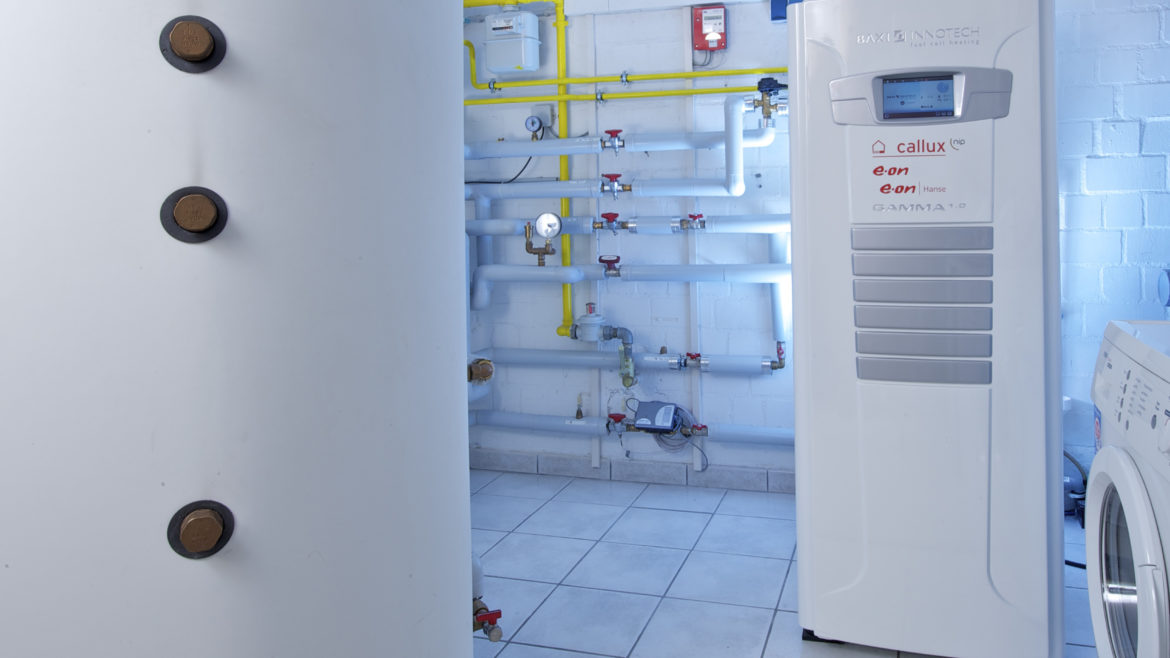A fuel cell heating unit has clear benefits: No line losses, because the electricity is produced on location and only when needed. On the heating side, emissions are significantly lower than with the still widely used home oil boiler. Conversion is easy too, and subsidies not only exists for private households, but also for companies and municipalities.
Fuel cells are currently not yet widely used in the home. Yet in reality, they represent a cutting-edge technology for supplying the home with both power and heat. As the most efficient form of combined heat and power generation, a fuel cell produces almost 60 percent less CO2 emissions than a conventional oil-powered boiler. The heating sector is responsible for around 40 percent of German CO2 emissions.
Conversion of systems is straightforward. Instead of the usual boiler, a fuel cell heating unit is installed and connected to the natural gas network. The benefits: Power and heat are generated simultaneously. In this way, no energy is lost. And because electricity is produced on site and only as required, no line losses are incurred. In this way, about half of the primary energy previously required to supply a household can be saved in this manner.
The German government has provided funding support for the installation of natural gas-powered fuel cells for the generation of heat and power for domestic energy in private households since 2016. The successful funding programme was extended to also include companies and municipalities in 2017.
e4Ships
The e4ships project has successfully demonstrated the use of fuel cells on ships. The tested systems offer the possibility of highly efficient combined heat and power generation also on board ships. Compared to conventional systems powered by marine diesel or heavy fuel oil, significantly reduced noise and exhaust emissions have been demonstrated. In addition, the modular approach offers a flexible and safe arrangement on board. The findings of the project have been incorporated into the development of international regulations in order to enable the use of alternative fuels and fuel cells in international shipping in the future.


